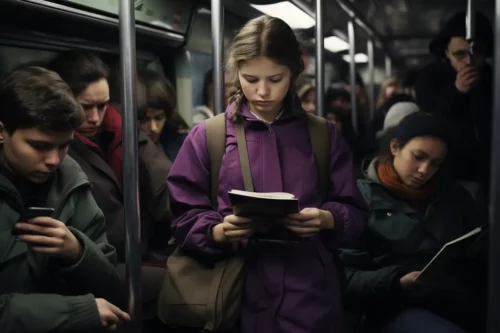H
ello, fellow book enthusiasts! The enchanting world of fiction is a realm not just of imagination and storytelling but also a powerful catalyst for positive change in our lives. As we delve into the pages of novels, we discover that the magic of fiction extends far beyond mere entertainment. In fact, one of its most profound effects lies in its ability to cultivate empathy, fostering a deeper understanding of the human experience.
The Escape into Empathy: Fiction as a Portal to Understanding
Fictional narratives serve as portals to different worlds, allowing readers to step into the shoes of characters with diverse backgrounds, perspectives, and life experiences. This imaginative immersion becomes a powerful tool for building empathy, as it enables readers to vicariously live the lives of others. Whether it's exploring the struggles of a character in a historical setting, navigating the complexities of relationships in a contemporary drama, or venturing into fantastical realms, fiction broadens our emotional horizons.
The Mirror of Connection: Recognizing Ourselves in Others
Through the rich tapestry of fiction, readers encounter characters facing universal challenges, triumphs, and tribulations. As we identify with the hopes, fears, and dreams of these fictional personas, we recognize the shared threads of our humanity. This recognition fosters a sense of connection and understanding, breaking down the barriers that often divide us in the real world. In the pages of a well-crafted story, we see reflections of our own vulnerabilities, joys, and struggles mirrored in the lives of characters we come to care about deeply.
Walking in Another's Shoes: Fiction's Role in Perspective-Taking
One of the remarkable aspects of fiction is its capacity to facilitate perspective-taking. As readers navigate the intricate narratives, they gain insights into the complexities of different lives. This empathetic engagement extends beyond the confines of the book, encouraging readers to consider alternative viewpoints in their real-world interactions. By immersing ourselves in characters' journeys, we practice the art of walking in another's shoes—a skill that has profound implications for our relationships and understanding of the diverse world around us.







